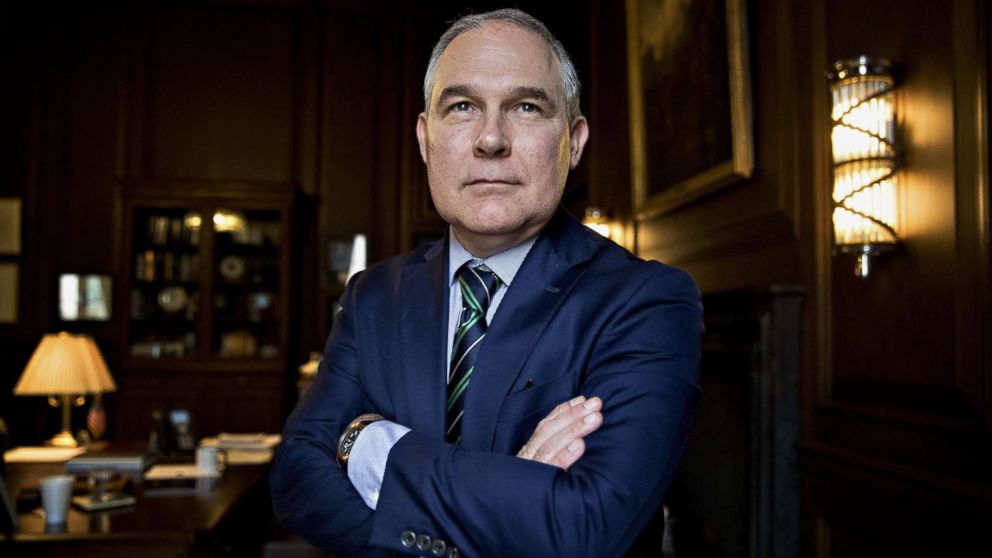


Environmental Protection Agency Administrator Scott Pruitt is moving to relax fuel efficiency and emissions standards for vehicles manufactured between 2022 and 2025, the agency announced Monday –- something largely applauded by the auto industry, which has argued the standards set by the Obama administration are prohibitively expensive.
The current greenhouse gas regulations, codified just before Trump took office and requiring automakers to roughly double fuel economy to more than 50 mpg, would be replaced by a standard developed in conjunction with the National Highway Traffic Safety Administration, according to the EPA.
"The previous administration's determination was wrong," Pruitt said in a statement. "Obama's EPA ... made assumptions about the standards that didn't comport with reality and set the standards too high."
The EPA also plans to "reexamine" a waiver that allows California to set stricter standards than those mandated by the federal government. Unlike other states, California is legally allowed to seek an exemption to federal standards in favor of its own. Other states aren't allowed to apply for their own waiver but are allowed to adopt California's, which a dozen states have.
"Cooperative federalism doesn't mean that one state can dictate standards for the rest of the country," Pruitt said. "It is in America's best interest to have a national standard, and we look forward to partnering with all states, including California, as we work to finalize that standard."
Already, California's Attorney General, Xavier Becerra, has threatened to sue.
"The Trump Administration's assault on clean car standards risks our ability to protect our children's health, tackle climate change, and save hardworking Americans money," Becerra said. "We're ready to file suit if needed to protect these critical standards and to fight the Administration's war on our environment. California didn't become the sixth-largest economy in the world by spectating."
New York, which adopted California's standard more than a decade ago, also may consider legal action.
New York Attorney General Eric T. Schneiderman slammed the EPA's decision as an "illegal rollback" that would prompt "higher fuel costs and more dangerous air pollution."
A patchwork of differing environmental regulations could present a headache for the auto industry, potentially necessitating the development of multiple versions of each vehicle.
"Maintaining a single national program is critical," the Auto Alliance, an interest group that represents more than a dozen manufacturers, said in a statement.
The industry, the group argues, is committed to improving fuel economy, but insists that in order to do that, "the wisest course of action is to keep new vehicles affordable" so that consumers can replace old, less-efficient vehicles with newer models that pollute less.
ABC News' Stephanie Ebbs contributed to this report.